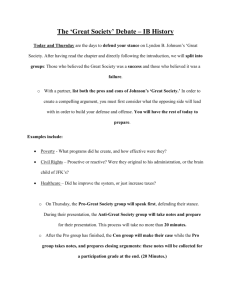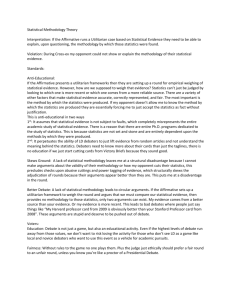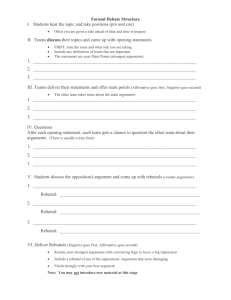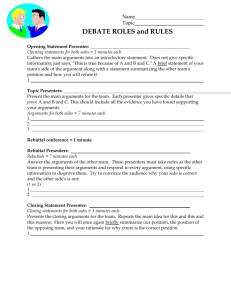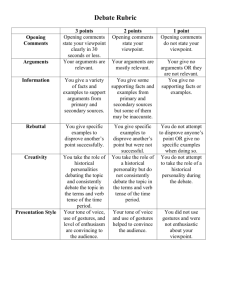Debate Basics Handout
advertisement
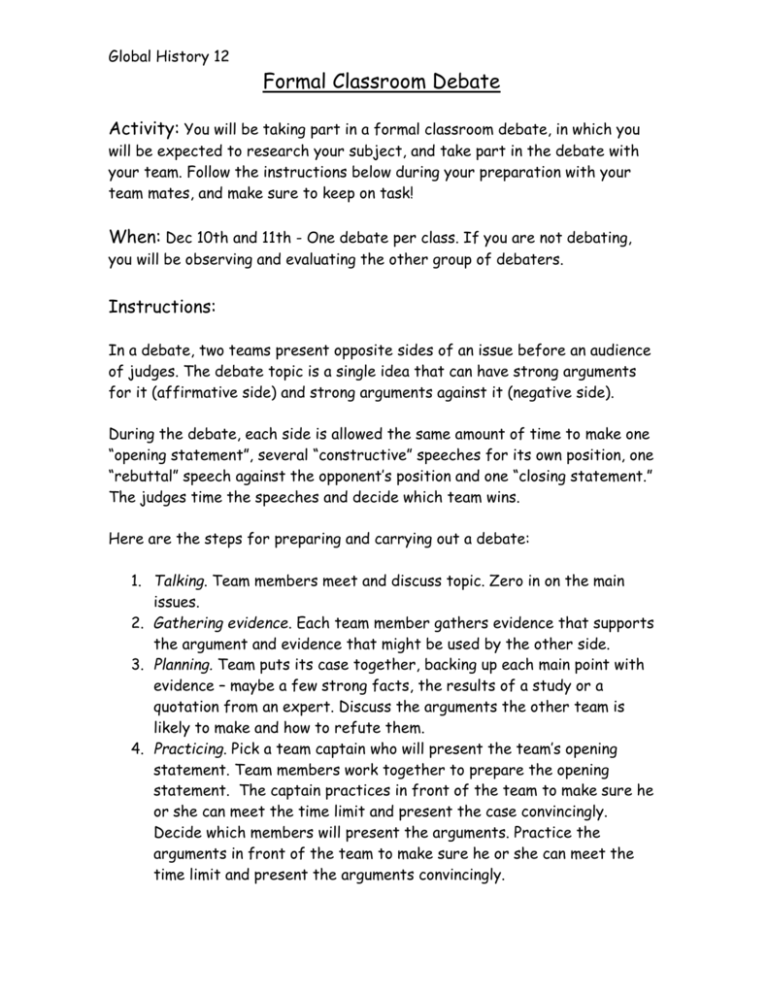
Global History 12 Formal Classroom Debate Activity: You will be taking part in a formal classroom debate, in which you will be expected to research your subject, and take part in the debate with your team. Follow the instructions below during your preparation with your team mates, and make sure to keep on task! When: Dec 10th and 11th - One debate per class. If you are not debating, you will be observing and evaluating the other group of debaters. Instructions: In a debate, two teams present opposite sides of an issue before an audience of judges. The debate topic is a single idea that can have strong arguments for it (affirmative side) and strong arguments against it (negative side). During the debate, each side is allowed the same amount of time to make one “opening statement”, several “constructive” speeches for its own position, one “rebuttal” speech against the opponent’s position and one “closing statement.” The judges time the speeches and decide which team wins. Here are the steps for preparing and carrying out a debate: 1. Talking. Team members meet and discuss topic. Zero in on the main issues. 2. Gathering evidence. Each team member gathers evidence that supports the argument and evidence that might be used by the other side. 3. Planning. Team puts its case together, backing up each main point with evidence – maybe a few strong facts, the results of a study or a quotation from an expert. Discuss the arguments the other team is likely to make and how to refute them. 4. Practicing. Pick a team captain who will present the team’s opening statement. Team members work together to prepare the opening statement. The captain practices in front of the team to make sure he or she can meet the time limit and present the case convincingly. Decide which members will present the arguments. Practice the arguments in front of the team to make sure he or she can meet the time limit and present the arguments convincingly. 5. Presenting opening statement. In timed speeches, each captain (affirmative and negative) has one turn to present the team’s main points in the opening statement. (3 minutes each) 6. Presenting arguments. In timed speeches each side takes turns to present arguments. Affirmative will present their arguments first, followed by negative. (3 minutes each) 7. Rethinking. Team members huddle to consider the other side’s arguments and discuss weaknesses in the other side’s reasoning. They plan new ways to show their case is stronger. (3 minutes) 8. Rebuttal. Each team has one turn to explain the weaknesses of the other side’s arguments. (3 minutes each) 9. Closing. Each team presents a closing statement reminding the judges why their argument is stronger. (3 minutes each) 10. Judge’s decision. The judges decide which team has won. Phrases to use during the debate Opinions/Preferences: I think..., In my opinion..., I’d rather / I’d prefer / I’d like to... The way I see it..., I honestly feel that / I strongly believe that..., If it were up to me..., I suspect that / I’m pretty sure that..., Disagreeing: • I don’t think that..., • I don’t agree, I’d prefer..., • Shouldn’t we consider..., • I’m afraid I don’t agree..., • Let's face it, the truth of the matter is..., Offering Explanations: • To start with..., • For this reason..., • Considering..., • When you consider that..., • The reason why..., Topic: ____________________________________________________

